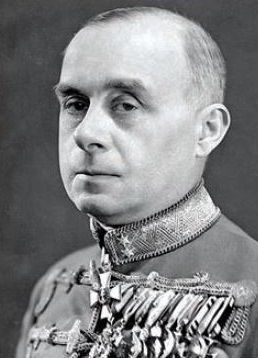On 22 August 1946, General Döme Sztójay, former prime minister of the Kingdom of Hungary, was executed by a firing squad in accordance with the sentence handed down by the People's Tribunal in Budapest.
Born in Versec into a Serb family, Döme Sztójay joined the Austro-Hungarian Army as a young man and rose to the rank of colonel during World War I. He served under Vice-Admiral Miklós Horthy in counterintelligence, and after Horthy was appointed regent of Hungary, became a military attaché in Berlin and then Hungarian ambassador to Germany.
On 23 June 1944, Hitler's troops entered Hungary and forced the resignation of the government. Horthy himself invited the Germans to appoint Sztójay as the new PM, expecting that, as a military man, he would not yield too much to German influence. However, Sztójay did not listen to Horthy and took an entirely pro-German stance. He legalised the Fascist Arrow Cross Party, dispatched new Hungarian units to the Eastern Front, launched a crackdown on trade unions, and harassed opponents (even though the opposition was utterly powerless). Sztójay began an unprecedented persecution of Jews in Hungary, many of whom were mobilised into “labour battalions” and sent to do forced labour on the Eastern Front. Between 15 May and 9 July 1944, some 427,000 Jews were deported from Hungary to Auschwitz.
In October 1944, the Hungarian government was overthrown in a coup d'état, and Sztójay was given no seat in the new cabinet. In April 1945, he fled to Germany and surrendered to the Americans. But in October, he was extradited to Hungary, convicted by a tribunal, and executed by firing squad.
Source:
Thomas L. Sakmyster, “A Hungarian Diplomat in Nazi Berlin: Dome Sztojay in Hungarian History/World History, ed. Gyorgy Ranki, Budapest: Akadémiai Kiadó, 1984.
























